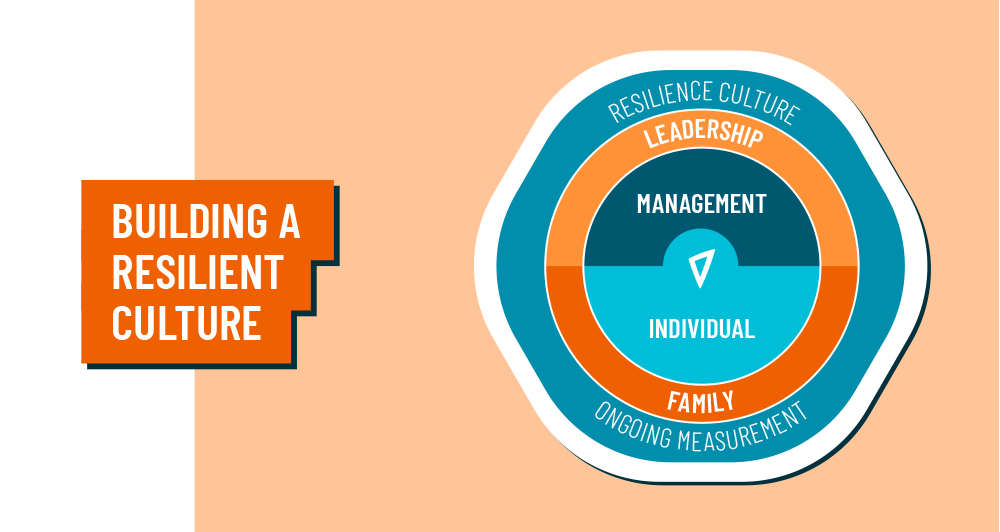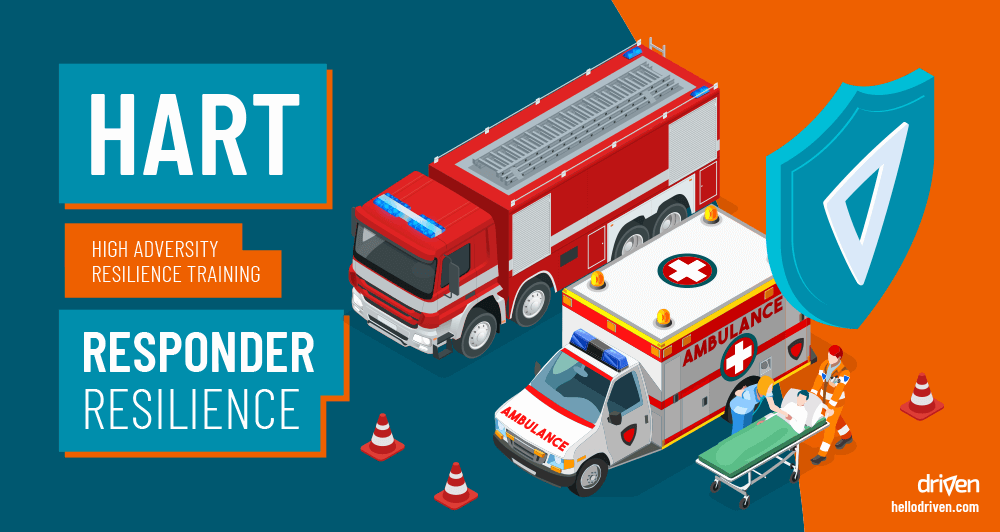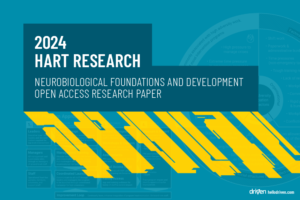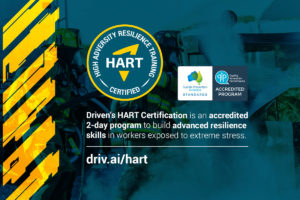Driven is taking on a long-standing challenge.
Emergency responders and military personnel face challenges beyond those of the general population. Responders deal daily with situations most people hope to never witness once in their entire lives. COVID has highlighted as well how some face harsh working environments every day.
However, simply being in these occupations doesn’t provide immunity to the effects of these stresses. This is where we see people struggling, leading to higher rates of burnout, anxiety, depression, PTSI and suicide.
Research done by those such as McCreary and Hamling point out that existing approaches to help responders and military personnel do not yet provide meaningful and measurable assistance.
Four factors of stress
Programs often focus primarily on the operational factors of the work. These include:
Dealing with life or death situations
Witnessing traumatic injuries and death
Helping people on the worst days of their lives, and so on
Basically, what people might normally think of as the hardest parts of the job. However, many responders would tell you that the things they see on the job is often not the most stressful part of the job. Instead, they mention other factors that drain their energy:
High volumes of paperwork and rigid procedures
Working long shifts and hours – for many it can be 80+ hours per week
Having a manager that’s hard to work with
Noticing unfairness in the workplace and being passed up for promotion
Not having enough support
Lack of courtesy
Extreme time pressures and dealing with conflicting agendas
Stigma about asking for help and being expected to be strong all the time
Challenges negotiating command structures and fitting into the culture
These are the organisational factors of the job that the individual is often not in full control of. There are also other challenges, such as relationship factors and financial factors that are often mentioned as stressed that affect individual resilience.
What we see then is that it is often organisational and other stresses that reduce the ability of a responder to cope with daily operational stresses. This is when we see operational stress that would normally have been managed instead have a more traumatic effect.
Resilience is about more than the individual
The key message here is that it’s not all up to building resilience in the individual, because it’s often those around the individual that wears down the ability to be resilient. After all, there are multiple people involved, including:
Leaders
Managers & supervisors
Co-workers & team members
Family, including partners & children
All these people contribute to creating the immediate environment of the responders. Everyone here has the ability to contribute to resilience or work against it.

This is where we see the need for broader cultural enhancement to build resilience and wellness across responder organisations, involving close collaboration with leadership, supervisors and managers, as well as responders themselves. To achieve this, we’ve been working on a new project!
The HART project
First Responder Resilience: HART – High Adversity Resilience TrainingHigh Adversity Resilience Training (HART) is the name of our new program aimed at responders and military personnel. We’ve built this program with the help of various experts with extensive operational experience, helping to build an advanced program to build resilient cultures in these organisations. HART provides a comprehensive approach to achieve culture enhancement:
- Leadership coaching – Tools for leaders and managers to build a culture of resilience
- Management workshops – Building leadership capabilities that ensures program success
- Online training – An AI-powered digital course available through the Driven Resilience App, usable by responders and their families
- Assessments – Tools to track progress to achieve scientific measurability
- Coaching resources – Tools and resources for coaches to run resilience workshops and train participants in HART skills. Enabled through a new HART coach certification course
- Paramedics & EMTs
- Hospital & clinic staff
- Fire & rescue staff
- Law enforcement officers
- Crisis dispatch call centres
- Military personnel
- Professionals (from corporate responders, through to executives requiring advanced training)
🎓 For Coaches
HART Certified Coaches get access to a cutting-edge specialised suite of resources and tools to help build a culture of resilience within organisations. Practitioners can complete the HART Coach Certification to access the full program and resources.
2-Day self-paced certification course
Specialised resilience training for emergency responders and high adversity workers
Access to 15 full workshop presentation packs for leadership, management, and skills training workshops
Includes examples of workshop delivery and presentation walkthroughs
Implementation guidelines, business and marketing training
On completion, receive a certificate as a High Adversity Resilience Coach
Prerequisite – CReC Course completion
Certification fees – US$585 (AU$745)
🚨 For Organisations
If you’d like to find out more about how HART can help your people, contact info@hellodriven.com


